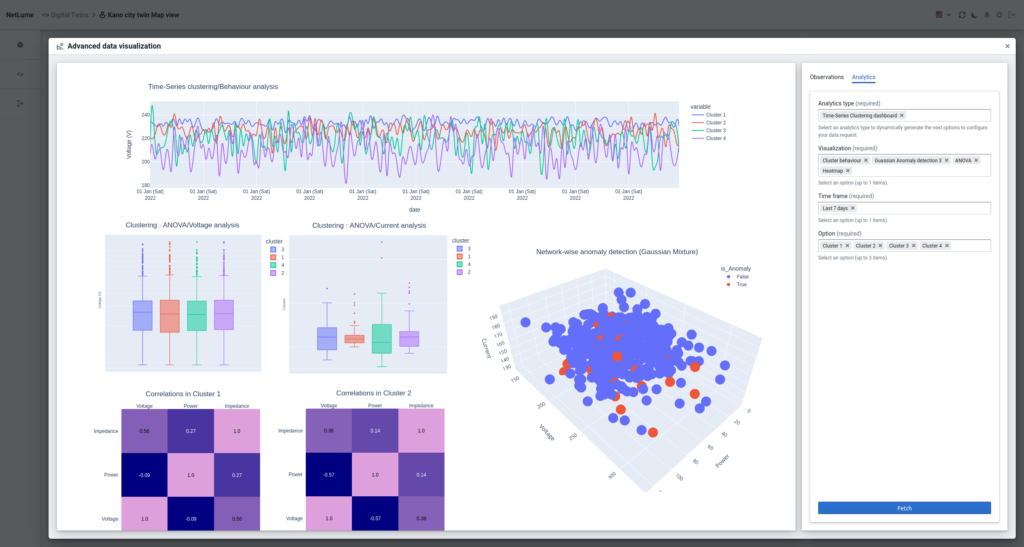
In the pursuit of a more sustainable future, the transportation industry has been undergoing a significant transformation. Electric vehicles (EVs) have garnered a substantial share of the market, particularly for short-range commuting and limited-hour driving. However, for certain applications, the current generation of EVs may fall short in terms of range and refueling time. Enter hydrogen-powered vehicles, a technology that holds immense promise as part of the energy transition. In this article, we will explore the role of hydrogen-powered vehicles and their significance in the future, along with how NetLume, a leader in IoT and data platforms, can facilitate their adoption and optimization.
The Promise of Hydrogen as a Transportation Fuel:
Hydrogen, the simplest and most abundant substance in the universe, has the potential to revolutionize the transportation industry. It is a colorless, odorless diatomic gas that can be produced sustainably, making it an attractive option for zero-emission mobility. Here are some key advantages of hydrogen-powered vehicles:
- Quick Refueling Times: Unlike battery electric vehicles that require lengthy charging periods, hydrogen fuel cell electric vehicles (FCEVs) can be refueled rapidly, much like conventional vehicles. This characteristic makes them suitable for businesses and individuals with demanding schedules.
- Extended Range: FCEVs offer longer driving ranges compared to many battery electric vehicles. The range anxiety often associated with electric cars is significantly reduced, providing a practical solution for long-distance travel.
- Zero Greenhouse Gas Emissions: Hydrogen FCEVs produce zero greenhouse gas emissions during operation. This aligns with the global goal of reducing carbon emissions and combatting climate change.
- Co-Product Valorization: Hydrogen production can result in valuable co-products, such as carbon capture and utilization storage, and enhanced oil recovery through Steam Methane Reforming (SMR). This adds economic value to the hydrogen production process.
Overcoming Challenges:
While hydrogen-powered vehicles offer numerous benefits, several challenges must be addressed to make them a widespread reality:
- Infrastructure Development: Much like the early days of electric vehicles, the hydrogen industry faces infrastructure challenges. The establishment of hydrogen refueling stations and transportation networks is essential for the technology’s growth.
- Cost Considerations: Green hydrogen, produced via the electrolysis of water, is costlier than blue hydrogen, which is produced from natural gas with carbon capture and storage. Finding cost-effective solutions for green hydrogen production is crucial for its wider adoption.
- Efficiency Improvements: To make hydrogen a more efficient fuel source, there is a need for larger-scale fuel cells and combustion turbines that can utilize hydrogen at high efficiency rates.
NetLume’s Role in Advancing Hydrogen-Powered Vehicles:
NetLume, as an all-in-one data platform for AI applications and Industrial IoT, plays a pivotal role in advancing the adoption and optimization of hydrogen-powered vehicles. Here’s how NetLume can contribute to the energy transition:
- IoT-Enabled Hydrogen Infrastructure: NetLume can provide comprehensive data solutions for the monitoring and management of hydrogen refueling stations and pipelines. Real-time insights and predictive maintenance capabilities can ensure the reliable operation of hydrogen infrastructure.
- AI-Driven Efficiency: With NetLume’s AI modeling capabilities, hydrogen production and distribution processes can be optimized for maximum efficiency. Predictive analytics can help reduce costs and improve the sustainability of hydrogen production.
- Network Monitoring: NetLume’s real-time network monitoring, complete with customizable map visualizations, can be applied to track hydrogen transportation networks, ensuring that deliveries are on schedule and that hydrogen is distributed safely.
- Customized Solutions: NetLume offers a low-code to no-code interface, allowing businesses to design AI models and data pipelines specific to their hydrogen-related operations. This flexibility ensures that NetLume can be tailored to meet the unique needs of the hydrogen industry.
Conclusion:
Hydrogen-powered vehicles are poised to be a crucial part of the energy transition, offering quick refueling times, extended ranges, and zero greenhouse gas emissions. While challenges remain, including infrastructure development and cost considerations, the promise of hydrogen as a fuel source is undeniable. NetLume, with its IoT and AI capabilities, is well-positioned to contribute to the growth and optimization of hydrogen-powered transportation, making the future of clean and efficient mobility brighter than ever before. Together, hydrogen and NetLume are driving the world towards a sustainable and emissions-free future in the transportation sector.
